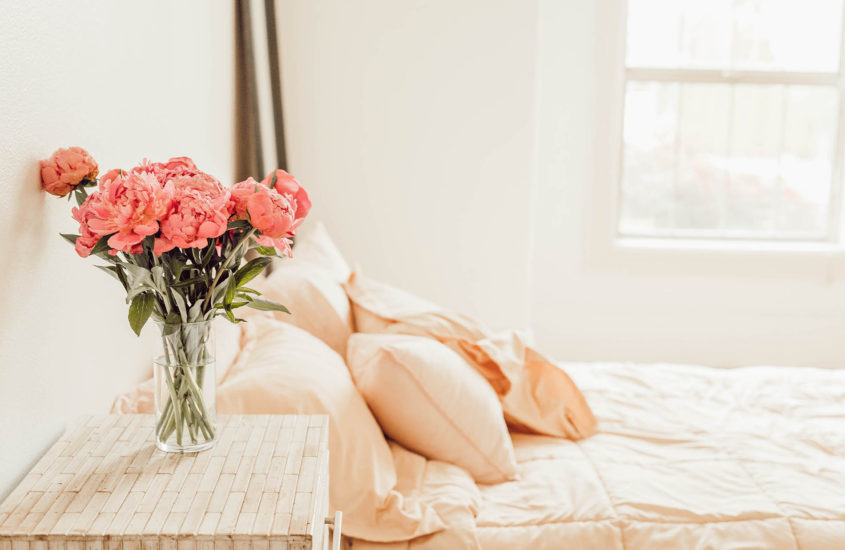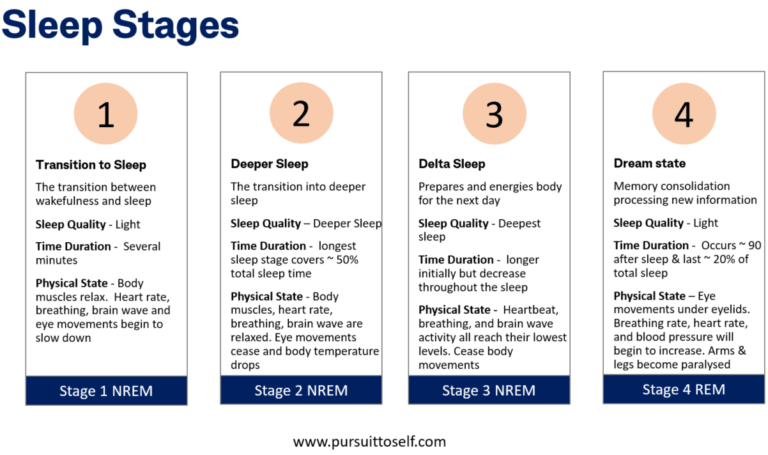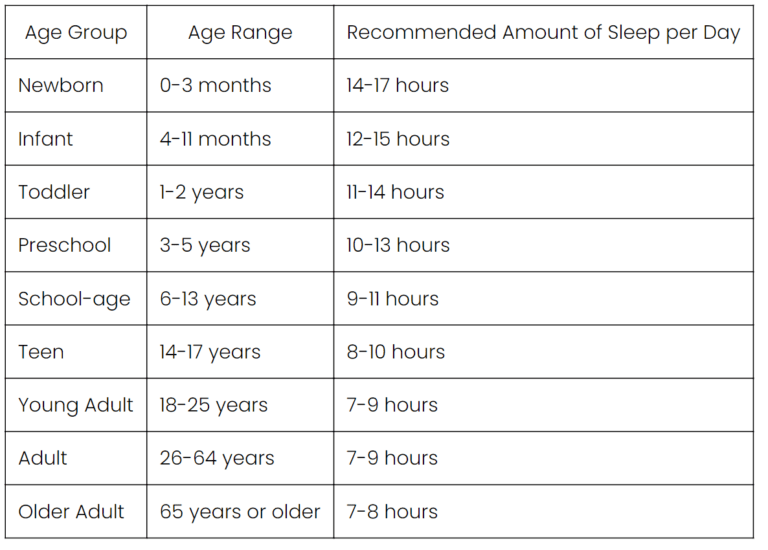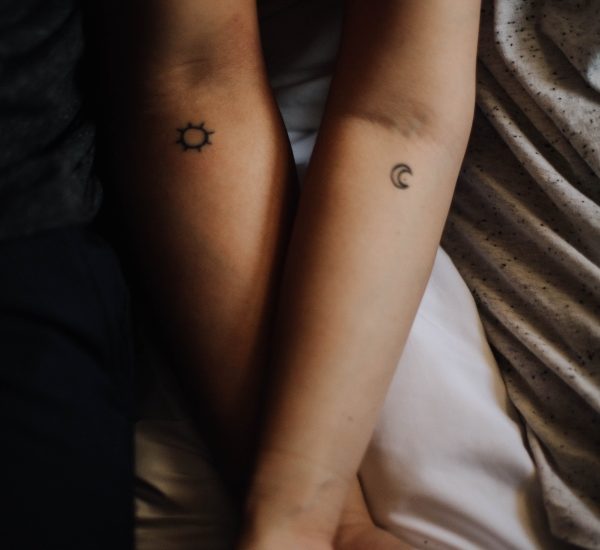How To Sleep Better Naturally?

Images Photo by Liana Mikah on Unsplash.
A complete guide for a good night’s sleep
In most days, I couldn’t fall asleep till 1-2 am even though I was tired and sleepy. It went on for days. Each morning I woke up around 7 or 8 am feeling unrested. I planned to do so many things during the day but got absolutely nothing done. All-day I was feeling sleepy, lethargic and unproductive. Hardly managed to have the energy to go for a short run.
Sleep is one of the 7 key pillars of health and longevity yet we neglect this pillar the most in my opinion. When it comes to holistic health and wellness we tend to first focus on diet & exercise spending thousands of dollars while carrying poor sleep habits and sleep quality.
I can say from personal experience that if you do not prioritise sleep, then diet & exercise alone are not much effective to achieve your health & fitness goals. Sleep is that low hanging fruit you can tackle today without breaking your bank. I can promise, you’ll see long-lasting benefits on your overall health and lifestyle immediately.
As I’ve restored my sleeping habits and rituals in the past weeks, today I’m excited to share with you the details. So that you can apply these tools and techniques to conquer your sleep issues.
These techniques and tools are based on ancient wisdom (Ayurveda & Chinese Traditional Medicine) and recent scientific research on sleep.
If you are someone who sleeps well, firstly I envy you. Secondly, I still believe you will be able to gain really valuable insights from this post to further promote quality sleep. So keep reading!
My sleep story
Well, I seemed to have a love-hate relationship with sleep. For the longest time in the past, I considered sleep is a waste of time. Especially as I used to feel more creative & productive in the evening. So sleep was way down in my priority list until it became life-threatening in 2015 when I was diagnosed with severe sleep Apnea. I underwent several sleep studies with various other tests.
The results were shockingly bad. I remember the doctor was saying to me “I don’t’ understand how you are still alive and functioning in this state. Any day you can expect to have a serious cardiac attack and suffer from mental disorders. Unless you are willing to make some serious changes about your sleep habits, you might need to consider sorting out your will papers”. Doctor’s code of dying soon.
According to medical advice, I started using the CPAP machine initially. However, personally, somehow I didn’t feel comfortable sleeping with the machine at all and even lost a few hours of sleep I was getting back then.
I knew traditional western medicine can only help with immediate symptoms. But I wanted to cure sleep apnea from the root. So I turned to ancient wisdom like Ayurveda & Chinese traditional medicine along with recent scientific studies on sleep.
I started educating myself and experimenting with various tools and techniques to cure my sleep apnea and improve the quality of sleep naturally. I had to make serious lifestyle changes from diet to movements to building healthy sleeping habits.
After years of trials & errors, I have managed to identify the optimum sleep routine and tools that not only helped me to cure my sleep apnea naturally but also improved overall sleep quality.
When I religiously follow this routine, I hit the targeted amount of quality sleep, my workout performances are better, my body is full of vital energies and my cognitive abilities, memory power are at their peaks. When I slack on this routine, I suffer serious sleep disturbance and deprivation. Immediately, I see the aftereffect as I get breakouts, have brain fog and overall feel lethargic, unproductive.

Your future depends on your dreams, so go to sleep.
- Mesut Barazany
Why having quality sleep is important?
When my sleep Apnea was at its peak, it caused me cardiac attack during a regular workday at the age of 29. Immediately I was taken to the emergency care and spent several days at the hospital recovering. It was my body’s way of shutting down and telling me “that’s enough”. To be really honest, my body whispered so many warning messages to me beforehand by weight gain, brain fogginess, chronic fatigue, sleepiness throughout the day, but I kept overlooking. Then it had to scream at me through a heart attack.
So it’s crucial that you pay attention to your body’s early sign of imbalances before it creates diseases.
Sleep is an essential part of our health, it shouldn’t be seen as unproductive. Sleep plays a vital role in good health and well-being throughout our life. Getting enough quality sleep at the right times can help protect your mental health, physical health, and life quality.
Sleep fatigue is real and can cause severe damages like car accidents or chronic diseases over the long run. How you feel, think, react, work, learn, play, and get along with others all depending on good sleep.
When you are having quality sleep, you are giving your body plenty of time to rest and recover, both mentally and physically. So that we can wake up fresh and ready to perform at a high energy level the next day. The way you feel while you’re awake depends in part on what happens while you’re sleeping.
When we sleep, our body engages in two key functions as follow
01 Brain cell clean-up, renewal & emotional wellbeing
Quality sleep is really crucial to maintain and protect cognitive functions. It also includes concentration, productivity, and performance.
All-day long you are consciously or subconsciously learning new things, collating information, acquiring skills, establishing new memories. While you’re sleeping, your brain is preparing for the next day. It reorganises neural networks and creates new neural pathways to help you learn and remember information.
Studies show that a good night’s sleep improves learning ability significantly by integrating new information from the day with all the previous memories, information you have learned previously in your life.
So next time if you are taking a new course or learning a new skill like swimming or taking a dance class consider prioritising sleep so that you’ll learn faster and effectively.
A recent study reveals a key insight that certain toxins are flushed from our brain through lymphatic vessels in the brain, called glymphatic. The glymphatic system is turned on during sleep and its function is suppressed during wakefulness. Besides waste elimination, the glymphatic system also helps to distribute non-waste compounds, such as glucose, lipids, amino acids, and neurotransmitters related to volume transmission, in the brain for better memory functions.
On the other side, sleep deficiency alters activity in some parts of the brain. If you sleep deficient, you may have trouble making decisions, solving problems, controlling your emotions and behaviour, and coping with change. Sleep deficiency also has been linked to depression, suicide, and risk-taking behaviour.
02 Kick start the body’s natural detoxification and cell regeneration process
Sleep also plays an important role in your physical health as well. Having quality sleep not only helps to cure diseases but also act as anti-aging and promotes longevity.
Our body heals and repairs heart and blood vessels during sleep. Thus ongoing sleep deficiency is linked to an increased risk of heart disease, kidney disease, high blood pressure, diabetes, and stroke.
Sleep deficiency also increases the risk of obesity. I definitely can vouch for this. In the past, due to my undiagnosed & untreated sleep Apnea, I gained excess weights. To make the matter worse, as I wasn’t getting enough quality sleep, my metabolism rate was also slower leading zero motivation for exercises. Also, I used to feel hungry all the time. So I was unsure which one to tackle first. It’s almost like whether the chicken comes first or egg situation.
Sleep helps maintain a healthy balance of the hormones that make us feel hungry (ghrelin) or full (leptin). When we don’t get enough sleep, our level of ghrelin goes up and you’re level of leptin goes down. This makes us feel hungrier than when we’re well-rested.
Sleep directly affects how our body reacts to insulin, the hormone that controls blood glucose (sugar) level. Sleep deficiency results in a higher than normal blood sugar level, which may increase the risk of diabetes. It also restores our adrenal glands, kicks start body’s natural detoxification process by our liver and the rebuilds immune system.
During nighttime sleep, you experience an increase in growth hormone and testosterone. These two are crucial muscle-repairing hormones that also significantly affect your neural growth and the way you feel during the day.
So when you don’t sleep enough, your body is in a continuous hormonally depleted, catabolic state and creates diseases.
The science behind sleep, Why do we fall sleep?
There are many factors that play a role in preparing our body to fall asleep and wake up. One of these key factors is our internal body clock known as “circadian rhythm” which has 24-hour repeating rhythm. This circadian rhythm is aligned with nature’s cycles as well. Primarily, this body clock controls when we’re awake and when our body is ready for sleep.
There are two factors that interact to control this rhythm.
Factor 1
The first one is pressure to sleep that builds with every hour that we’re awake. This drive for sleep reaches a peak in the evening when most people fall asleep.
- Dominant hormone– Adenosine. While we are awake, the level of adenosine in our brain continues to rise. The increasing level of this compound signals our body to prepare toward sleep. When we sleep, our body breaks down adenosine.
Factor 2
The second factor is the connection between our circadian rhythm with natures/environmental cues like light, darkness, temperature etc. As an example, light signals received through our eyes signals a special area in the brain that it is daytime. This area of the brain helps align our body clock with periods of the day and night.
The rhythm and timing of the body clock can change according to age, body’s need. As an example, the newborn may need more sleep for development than teens.
- Dominant hormone for sleep- Melatonin. When it gets dark, our body releases melatonin to signal the body that it’s time to prepare for sleep, and it helps you feel drowsy. The peak of this hormone is crucial for good night sleep. Hence, exposure to bright artificial light like phone, computer screens etc. in the late evening can disrupt this process, making it hard to fall asleep.
- Dominant hormone to awake – Cortisol. As the sun rises or exposure to bright lights, our body releases cortisol. This hormone naturally prepares our body to wake up.
Stages of Sleep
Once we fall asleep, our bodies follow a sleep cycle divided into four stages. The first three stages are known as non-rapid eye movement (NREM) sleep, and the final stage is known as rapid eye movement (REM) sleep.
It is important to realize that sleep does not progress through these stages in sequence. Sleep begins in stage 1 and progresses into stages 2 and 3. After stage 3 sleep, stage 2 sleep is repeated before entering REM sleep.
Once REM sleep is over, the body usually returns to stage 2 sleep. Sleep cycles through these stages approximately four or five times throughout the night. These four stages will repeat cyclically throughout the night until you wake up.

How much sleep is enough?
Sleep Hours
The optimum numbers of hours for a good quality sleep remains a highly debatable topic. Before I started learning about sleep, I assumed 7-8 hours of sleep is enough. But later came to understand the answer to this question should not be “one size fits all” approach rather it should be highly individualistic.
Sleep Foundation recommends having 7-9 hours of sleep for an adult. However, to achieve the goal of quality sleep you need to consider various other factors alongside with timing which I will explain later in the post.
Sleep Time
Sleep timing is really crucial aside from hours of sleep.
In Ayurveda, it recommends going to bed by 10 pm and waking up before 6 am. During 10 pm-2 am is the Pitta time when the fire element is at peak helping our body to internally clean, detox & repair. This is the time for doing all the heavy lifting internally. 2 am-6 am is the Vata time when the air element is dominated in nature. This is the best time for all our brain’s cognitive & physic ability to strengthen. Hence Ayurveda recommends waking up before 6 am and engaging in mindfulness activities like meditation, prayer etc.
According to Traditional Chinese Medicine (TCM), our body’s various organs function and replenish themselves at different times of the day. During the course of the day, each organ has its own 2-hour slot, when it is most energetically active. TCM also recommends going to bed before by 10.
- 11 pm-1 am is the time for our bile to be released from the gallbladder. It is when our blood is running at full speed to clean itself of the day’s dead cells and repair damage.
- 1 am- 3 am is reserved for another crucial organ- liver. By that time, we should be in a deep sleep phase, which is also the optimal time for our liver to nourish and clean the blood. If a person stays up late every day, the blood is not able to flow back to the liver for detox, thus fresh and clean blood is not produced.
How to measure good night sleep?
Most of us can relate to the feeling of waking up tired and groggy in the morning, even on nights when you’ve slept for a longer period. It’s a frustrating experience.
Sleep quality is different from sleep quantity. Sleep quantity measures how much sleep you get each night, while sleep quality measures how well you sleep. So let’s see some of the markers of good night sleep-
- You fall asleep relatively soon after getting into bed within 30 minutes or less.
- You sleep straight through the night and not waking up multiple times. You can also fall back to sleep within a short period of time even if you wake up.
- You feel very rested, and energized upon waking up in the morning.
- Throughout the day, you have clarity of mind and higher concentration. You have higher productivity.
How to sleep better naturally?
Let’s have a look at how making small changes to your routine and lifestyle can significantly improve the quality of sleep leaving your mind and body replenished and energised for the next day. So that you can go after all your dreams and goals.
01
Environment
Honour your body’s circadian rhythm that’s in sync with nature. Try to go to bed by 10 pm so that you give your body enough opportunity to recover & reset. Maintain the same sleeping schedule on weeknights, weekends and even during holidays. Staying up late and sleeping in late on weekends disrupts your body clock’s sleep-wake rhythm.
As mentioned earlier, one of the trigger to prepare our body for sleep is less exposure to artificial/natural light so that melatonin hormone can be released in our body to prepare for deep night sleep.
In the evening, transform your bedroom into a dark, and quiet room. You can use blackout curtains or wear a sleep mask. Limit exposure to blue lights like computer, mobile, TV etc. or at least wear blue light blocking glasses. Exposure to artificial bright light signals your body that it is a day time and delay sleep preparation in our body.
On the other hand, ensure in the morning you flood your body with natural light as soon as you get out of bed, which sends a clear message to your body that it’s time to wake up. Try exposing your body to natural sunlight in the morning. Go for a walk or exercise outside. Throughout the day, keep the natural light flowing. Sit near a window at work, or hang out outside during your lunch break. On the weekends, plan a picnic or take a hike instead of staying indoors all afternoon.
Scientific studies show that room, our body and surrounding temperature plays a big role for better sleep. An ideal room temperature of 16-18 degree celsius is ideal to relax our body & nervous system. Consider taking a cold shower or cold foot bath in the evening a few hours before to bring down your body’s temperature and relax the nervous system. You can also use a cool pad underneath your mattress to manage heat.
According to Ayurveda, the feet connect with our body’s meridian system. So cooling down the feet is a time-tested way to refresh the mind and return to restful sleep. I’m a pitta- Kapha constitution. so cooling down is key for my body which is already dominated with heat.
Feng shui, which originates in the Chinese philosophy of Taoism, instructs on how to arrange living space and environment to promote holistic health & wellness. Feng shui suggests designing rooms, furniture, offices, houses, and other arrangements to maximize favourable energy flow throughout living spaces.
Dedicate your bedroom pace for relaxation & sleep purposes. Your bedroom also contains energy so if you watch TV or work in the bedroom, it will contain the active energies making it more challenging for you to sleep. After implementing this simple technique, I have seen material improvements in my sleep quality.
02
Diet & Supplements
Eating a big, late meal demands more of your digestion than it can handle at that time of night—reducing digestive strength and preventing sound sleep. According to Ayurveda lunch should be the biggest meal of the day (when the pitta fire of digestion is strongest), eating a light meal around sunset, and allowing at least two hours to digest before bedtime is ideal.
Additionally, practice intermittent fasting at least a few times a week to promote better sleep. Since I’ve started practising intermittent fasting 3 years back, my sleep has improved significantly as I don’t have any dinner. This not only helps me to sleep better but also my body gets additional time to repair and reset internally.
Reduce or avoid consumption of alcohol, nicotine and caffeine (including caffeinated soda, coffee, tea, and chocolate). Nicotine and caffeine are stimulants, and both substances can interfere with sleep. The effects of caffeine can last as long as 8 hours. So, a cup of coffee in the late afternoon can make it hard for you to fall asleep at night.
Incorporate food and drinks that relaxes the nervous system to promote better sleep. Foods that are rich in Omega -3, Magnesium and low GI are sleep-friendly.
Cheese, almond, salmon, whole grain crackers, legumes and seeds, dark leafy green vegetables, wheat bran, almonds, cashews, cherries, banana, coconut oil are great options.
Drinking Chamomile Tea before bed is proven really effective as it has calming properties unlike other teas like green or Earl Grey tea. Other ingredients that promote restful sleep include the longan fruit, which is said to improve circulation.
Incorporate supplement like magnesium, zinc, vitamin D, melatonin, L-theanine, B Complex in your daily diet.
03
Exercise
Researchers in Northwestern University’s Department of Neurobiology and Physiology reported that previously inactive adults who got aerobic exercise four times a week improved their sleep quality from poor to good. They have also reported fewer depressive symptoms, more vitality, and less sleepiness during the daytime.
Another study concluded that people who get 60 minutes of exercise five days per week have more normal REM sleep and wake up less frequently than non-exercisers. Exercise has the ability to induce circadian phase-shifting effects.
According to your Ayurvedic Dosha, plan your exercise timing in the morning, afternoon or evening. Longer afternoon or early evening workout sessions are usually more effective in promoting better night sleep. However, be mindful of completing exercise at least 3 hours prior to bedtime if you prefer evening like me. This will give enough opportunity for your body to cool down the temperature and stress raised during the workout sessions.
04
Lifestyle choices & Evening ritual
I cannot stress enough the importance of having a sleep-friendly evening routine can be a game-changer. Consider to incorporate at least a few of these recommendations and I can assure, you will see the results in no time. As the sun goes down engage your mind and body to prepare for a good night’s sleep.
Both Ayurveda and Traditional Chinese medicine suggest incorporating a daily self-massage into your evening ritual. According to your Dosha, you can choose cool or warm oil for self-massage. . Generally, sesame oil is warming and coconut oil is cooling. Key areas to rub are the feet, low back, ears, and head. Use slow, soft strokes for Vata, and a bit more vigorous rubbing for pitta to dilate the blood vessels and release heat.
You can also give yourself an acupressure massage. One of the points is located behind the ear is an acupressure point called anmian, which translates to “peaceful sleep” and is used to treat insomnia. Place your finger on this depression and apply pressure in a circling motion to massage it. After circling 100 times, you should feel more relaxed and ready to rest. Another one Located on the underside of the wrist, just under the bottom of the hand, is an acupressure point called Shen men, which is considered to improve the length and quality of sleep. Simply place your finger on this depression and apply pressure in a circling motion to massage it. After circling for around 5 minutes, you should feel more relaxed and ready to rest.
You might think that writing stuff down would make you dwell on it. However, studies have shown that the stress build up during the day can adversely affect sleep quality. So practice journaling to both write-down things you are grateful for and your to-do list for the next day. So you reset your mind. You focus on the things that you appreciate, you might actually sleep better.
Based on scientific studies and ancient wisdom like Ayurveda, engaging in mindful activities evening is crucial for a deeper sleep and healing. You can practice silent or guided relaxing meditation, listen to white music, read books, play or simply spend quality time with loved ones.
Sniffing essential oils like lavender oil before bed can have a powerful effect on your mood. Consider taking advantage of aromatherapy to fill your bedroom with aromas that are thought to ease anxiety and promote relaxation, like lavender, spikenard, vetiver, frankincense, myrrh, and clary sage.
Certain Ayurvedic Dosha types like Vata can feel restless or fidgety during sleep. Adding additional weight on the body like an extra blanket or pillow on your legs at night helps. Vata Dosha governs the legs, and an excess lightness of movement in the legs can disturb sleep.
Napping during the day may provide a boost in alertness and performance. However, if you have trouble falling asleep at night, limit naps or take them earlier in the afternoon. Adults should nap for no more than 20 minutes.
Share with us your best tips for good night sleep.
I would love to hear from you, so please tag me @iamtaslimbegum on Instagram.
Lots of love & light from my soul to yours!
Taslim
P.S. Please remember to always consult with your doctor or health practitioner before trying any new health, diet, or lifestyle practice.
Book Recommendations
This site may receive small commissions for purchases made through links in this post through affiliate websites.




